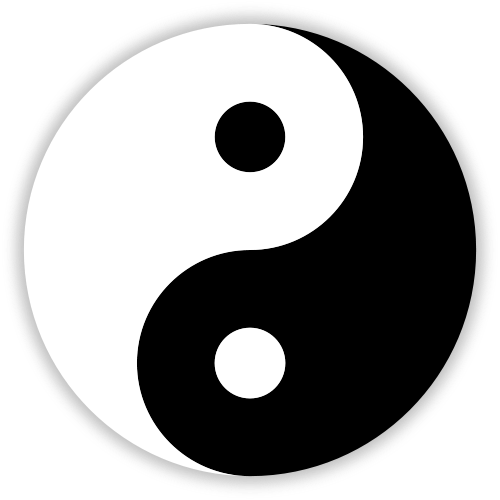The month of June proved to be an epic month for the forces that will determine the future of western ideals of individual liberty and free will. As modern society seems to have determined, the forces are not directional, but in direct conflict with each other. Taoist Chinese philosophy describes an equal and polar opposite juxtaposition of forces, the “dark” and “light” or yin and yang of events or actions. Western philosophy as expressed in the enlightenment put forth the notion that the individual could take a hand in his destiny through free will and placed protections in the form of contracts with the individual, such as the precursor Magna Carta and the Enlightenment’s masterpiece, the U.S. Constitution and Bill of Rights. These documents placed a firewall between individual liberty and destiny and the external forces that could drive an individual’s fate or shackle his free determination.
June 2012 may have indicated the Chinese philosophers are on to something. The month began with the dramatic democratic expression of Wisconsin’s June 5th governor recall election, where the voting population under enormous pressure voted to preserve their capacity to dictate how the hard earned resources of the state would be used, rather than a special interest. The month climatically ended on June 28th, with the Supreme Court of the United States determining the polar opposite, a constitution wrenching decision that the government has the capacity for the arbitrarily greater good of society to compel people to participate in actions regardless of their individual desire to do so.
We are at this crossroads for the obvious reason that society itself is conflicted. We are not the confident culture of the founders generation that universally trusted their own work ethic, personal responsibility and faith in God to secure their futures. We live in a time when personal freedom is oft seen as a burden that too often allows the risk of bad choices and looks for a general blanket of security to protect against failure. The evident security bargain has led to the “freedom” to obtain abhorrently expensive yet meaningless degrees that celebrate victimhood and security over personal elevation and competitive advantage. All the better to have someone else pay for this false choice then. It has led to a government that seeks to remove free will from the map of life – whether its the car you own, the type of fuel it uses, the food you eat, or investments you make in your own health. As it apparently it is no one’s responsibility to make these choices it becomes everyone’s responsibility, and burden. It has driven us to support our fear of choice to invest in our own security at the expense of future generations, celebrating the perfect society, only to irreversibly sew the seeds of its inevitable collapse.
The Wisconsin election suggested the recognition by the voting public that mandating the future does not preserve the future, is not a dead concept. Like a morbidly obese person who recognizes that their personal exhaustion and moribund status is related not to the architecture of their humanity but rather the increased burden excessive weight places on the usually capable physical machinery, the Wisconsin voter opted for governmental weight loss, and the result was a state that can breath easier, walk farther, and more confidently face the future’s challenge. The Supreme Court decision implies that it remains for the national voter to grasp the effects of a morbidly obese national debt on the nation’s health and energy, and face the hard decisions the Wisconsin voter did.
Chief Justice Roberts failed in one crucial sense when he voted to uphold a law he knew to be adversarial to the tenets of the Constitution he took an oath to preserve. It was his failure to recognize he became political by suggesting the Court had to be above politics and therefore not interfere in policy. He stated:
“We do not consider whether the Act embodies sound policies. That judgment is entrusted to the Nation’s elected leaders.”
“Members of this Court are vested with the authority to interpret the law; we possess neither the expertise nor the prerogative to make policy judgments. Those decisions are entrusted to our Nation’s elected leaders, who can be thrown out of office if the people disagree with them. It is not our job to protect the people from the consequences of their political choices.”
Chief Justice Roberts may have been correct when he stated that it was not the Court’s role to determine whether policy was bad or good, but he failed in discerning that whatever the political pressure, it is the Court’s unique role to determine as to whether policy , bad or good, is constitutional or not. His logic implies an underlying absence of conviction that the constitution as designed with limited and enumerated powers is good. Bad or good policy ruled unconstitutional can be re-written to reflect constitutionality and voted on again. Unconstitutional policy whether bad or good alllowed to stand destroys the fabric of law enforcement’s constitutional basis. If the Chief Justice feels it is politically damaging to apply the standard of the Constitution to legislated law, it calls into question why any law should accept the Court’s constitutional role by the founders to check and balance for legislative exhuberance.
The month of June ends with the ying and yang of western civilization becoming ever more acute and pertinent. Is it the role of western society to evolve in such a way that it evolves itself out of existence? Are we smart enough, prescient enough to recognize the elements of our own survival lies in trusting the latticework constructed by our greatest thinkers so long ago to guide our future? Chief Justice Roberts is yin, Scott Walker is yang, and We the People are the inevitable whole that will need to provide the ultimate destiny.
